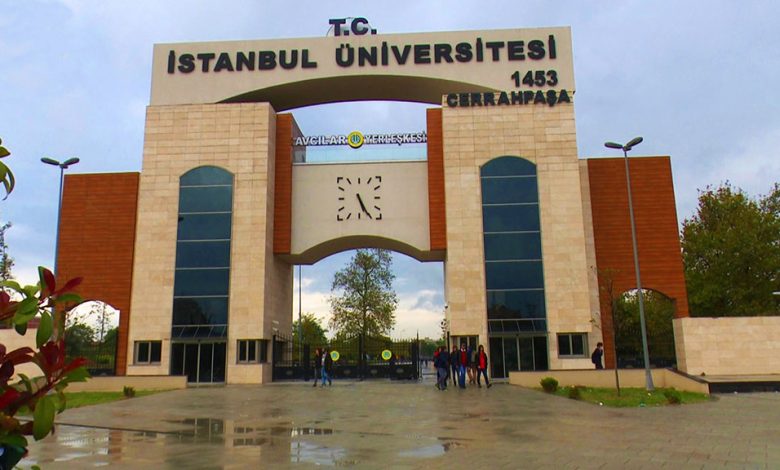Required Documents for University Study in Turkey and Student Visa 2025

Required Documents for University Study in Turkey and Student Visa 2025
Turkey is considered a very attractive and suitable educational destination for Iranian students and pupils. Individuals who intend to enter universities and educational institutions in Turkey must prepare the necessary documents for studying in Turkey in 2024, such as a motivation letter and other documents. The first step for completing and submitting documents related to Bachelor’s and Master’s degrees is the evaluation and accreditation of the applicant’s previous academic qualifications obtained in other countries.
To start studying in Turkey, all international students must obtain a student visa. After receiving acceptance from the university, students must go to the Turkish embassy or consulate in their country and submit the required documents for obtaining a visa. At this stage, the embassy officials review the documents and issue the student visa.
To start studying at the Bachelor’s level in Turkey, individuals must submit their documents along with a certified translation of their high school diploma to the Turkish consulate in their country of residence. At this stage, the consulate officials review the documents and issue a letter of equivalency for the high school diploma with a Turkish diploma. The Council of Higher Education of Turkey, or YOK for short, is responsible for validating university degrees at postgraduate levels. The probability of validating degrees from state universities in Iran is very high; however, in some cases, degrees from other universities may not be validated.
The best source for inquiring about the required documents for studying in Turkey and accurate information regarding costs and other relevant details about studying at Turkish universities is the official websites of the universities and the Turkish consulate in the country of residence. These websites provide complete and up-to-date information regarding student admissions, tuition fees, required documents, and other conditions.
Finally, after validating and approving the documents by the relevant authorities, specific documents are required for entry into each academic level and receiving academic acceptance. These documents may include a motivation letter, recommendation letters, academic transcripts, or other documents related to the desired field of study at different academic levels.
Please note that website contents and policies may change, so it is important to use official and up-to-date sources.
Required documents for continuing education with a high school diploma in Turkey include:
1. High school diploma (temporary or original) – Copy of high school diploma along with a copy of its translation into Turkish or English.
2. High school transcripts – Copy of high school transcripts with grades translated into Turkish or English.
3. Identification documents and passport – Copy of identification documents such as national ID card or Shenasnameh – Copy of passport (if available).
4. Transcript equivalency certificate – Certificate from the Turkish embassy or the Turkish Ministry of National Education for transcript equivalency. – Academic equivalency certificate form.
5 – Turkish or English language certificate (optional) – Copy of the desired language certificate (such as TOEFL or IELTS) if available. – Student’s language certificate based on language skills.
6. Motivation letter and recommendation letters – A personal motivation letter covering topics such as reasons for studying in Turkey, personal and professional goals, etc. – Two to three recommendation letters from teachers or influential individuals in your academic path. And academic resume.
7. Additional documents (if needed) – Any additional documents related to the field of study or previous work experience.
8. – Proof of financial means – To prove the applicant’s financial capability and guarantee the costs of living and studying in Turkey, it is mandatory for the applicant to provide sufficient proof of financial means. This certificate must provide accurate financial information so that the embassy or relevant authorities are assured in this regard. This certificate usually includes a bank account statement, income certificate, or other related financial documents.
9- Two passport-sized color photos (3×4).
10- Providing a document that guarantees the student in question has no undesirable criminal record.
11. Obtaining a passing score in the university entrance exam if participating in the university exam.
Please note that some universities or programs may require specific documents, so it is best to carefully check the precise requirements of each desired university.
Required documents for studying at the Bachelor’s level in Turkey include:
1. Official translation of high school transcripts and high school diploma into Turkish – Copy of high school transcripts with grades translated into Turkish or English.
2. Translation of pre-university certificate along with the translation of pre-university transcripts.
3. Identification documents and passport – Copy of identification documents such as national ID card or Shenasnameh – Copy of passport (if available).
4. Obtaining a passing score from the YÖS exam of the desired university.
5 . Obtaining the minimum required score in international university exams such as SAT.
6. Identification documents and passport – Copy of identification documents such as national ID card or Shenasnameh – Copy of passport (if available).
Required documents for studying at the Master’s level in Turkey include:
1. Translation of Bachelor’s degree and transcripts into Turkish.
2. Translation of previous academic degree along with transcripts into Turkish.
3. Identification documents and passport – Copy of identification documents such as national ID card or Shenasnameh – Copy of passport (if available).
4. Obtaining a passing score from the ALES exam for English and Turkish speaking universities (if required) and the desired university’s request.
5. Obtaining a passing score from the GRE exam (if required).
6. Having a valid English language certificate TOEFL or IELTS (if required).
7. Having a Turkish language certificate, or TOMER (if required).
8 . Having an academic, research, and work resume related to your field.
9. Providing specific required documents requested from the student on the desired university’s website.
Required documents for studying at the PhD level in Turkey include:
1. Translation of Bachelor’s degree (continuous or discontinuous) along with transcripts with Turkish or English translation.
2. Translation of Master’s degree along with transcripts with Turkish or English translation.
3. Obtaining a passing score from the ALES exam for English and Turkish speaking universities (if required).
4. Obtaining a passing score from the GRE exam (if required).
5 . Having a valid English language certificate TOEFL or IELTS (if required).
6. Having a Turkish language certificate, or TOMER (if required).
7. Identification documents and passport – Copy of identification documents such as national ID card or Shenasnameh – Copy of passport (if available).
8. Having recommendation letters from 2 university professors.
9. Having a relevant academic, research, and work resume.
10 . Attending an interview if there is an in-person interview at the university.
Note: After receiving academic acceptance from Turkish universities, applicants must obtain a student visa to enter Turkey. Turkey is one of the countries that does not require a visa for Iranians. If individuals intend to stay in Turkey for more than 90 days, they are obligated to obtain a visa and must apply for residency. Applicants for studying in this country, by obtaining a student visa, will be allowed to enter and reside in Turkey for a long period.
Required documents for obtaining a Turkish student visa include:
1- Having a passport with a validity of at least 90 days.
2- Having 2 passport photos.
3- Having an acceptance letter from the university.
4- Having travel insurance for the days of stay in Turkey.
5- Completing and signing the visa application form.
6 – Having student insurance.
7- Proof of financial means for one year.
8- Visa payment receipt.
9- Proof of airplane ticket reservation to Turkey.
10- Proof of accommodation in Turkey, having a valid address.
11- Having a translation of the student’s previous academic degree.
12- Having a medical health certificate for the applicant.
13- A document indicating no unfavorable criminal record.
Note: To apply for a student visa in Turkey, international students must provide the required documents in Turkish. If documents are not provided in Turkish, they can provide the original version of the documents along with a valid translation. This can be done in person at the Turkish embassy or consulate in the country of residence or done online. A student visa is issued for one year and, if necessary, can be extended. For employment in Turkey, familiarity with the Turkish language is mandatory, and learning it is very crucial. Initially, international students must obtain a student visa to continue their studies at Turkish universities, which requires the university’s agreement to the student’s admission application. Upon receiving the acceptance letter from the university, students must go to the Turkish embassy or consulate in their country of residence to apply for and receive their student visa. The conditions for obtaining a Turkish student visa include having a university invitation letter, and it may be issued for single or multiple entries. The time for processing the visa application takes a maximum of 3 months, and the visa application fee is approximately 48 US dollars.
An Important Point About Financial Means:
In this regard, individuals should remember that banks usually state the official exchange rate in the proof of financial means, but the embassy or consulate of the destination country uses the free market exchange rate for calculation. Therefore, to ensure their application is not rejected due to the difference in exchange rates, individuals should check their account balance at the free market exchange rate. To determine the exact amount of financial means required in this country, the amount and type of proof of financial means will be determined by the Turkish embassy or consulate.
Individuals can prove their financial ability by providing the following documents:
1- Providing a copy of the bank certificate or stock purchase documents.
2- Having documents that show family support (financial sponsor) for your education in Turkey.
3- A list of assets that can be easily converted into cash.
4- Providing documents for obtaining scholarships, student loans, or government loans, etc.
A Turkish student visa is an official permit that enables non-nationals to temporarily reside in Turkey, provided they later apply for a permanent residence permit. This type of visa is suitable for foreign pupils and students and allows participation in short or long-term study programs. When applying for a Turkish visa, you must choose one of the options related to the type of student visa and proceed with the relevant steps.
Some specific universities in Turkey provide opportunities for free education. Successful students can study as scholarship recipients by meeting the necessary conditions and be able to cover their study and living expenses without financial worries. This unique solution is provided by submitting documents such as academic acceptance and a student visa.
A scholarship is not only a financial opportunity but also an indicator of the student’s effort and capability in the path of higher education. This enables students and pupils to experience studying at one of Turkey’s prominent universities and benefit from all the educational and cultural facilities of this country.
Types of Turkish Student Visas
A Turkish student visa is an official permit that enables non-nationals to temporarily reside in Turkey, provided they later apply for a permanent residence permit. This type of visa is suitable for foreign pupils and students and allows participation in short or long-term study programs. When applying for a Turkish visa, you must choose one of the options related to the type of student visa and proceed with the relevant steps.
Visa Type: Internship Visa
Description: For Bachelor’s and Master’s students who are seeking to increase skills related to their field of study.
Visa Type: Erasmus Internship Visa
Description: For European Union students who intend to study in Turkey to participate in the Erasmus program and expand international experiences.
Visa Type: AIESEC Internship Visa
Description: For Bachelor’s and Master’s students who wish to participate in internship projects related to global companies worldwide.
Visa Type: Turkish Language Course
Description: For those who are beginners and intend to learn the Turkish language, this visa allows residency in Turkey until the end of the language course.
Visa Type: Other Training Courses
Description: For those interested in participating in skill-based courses such as cooking and art.







